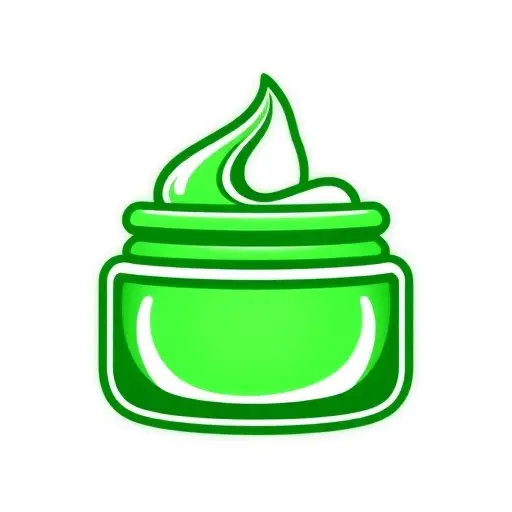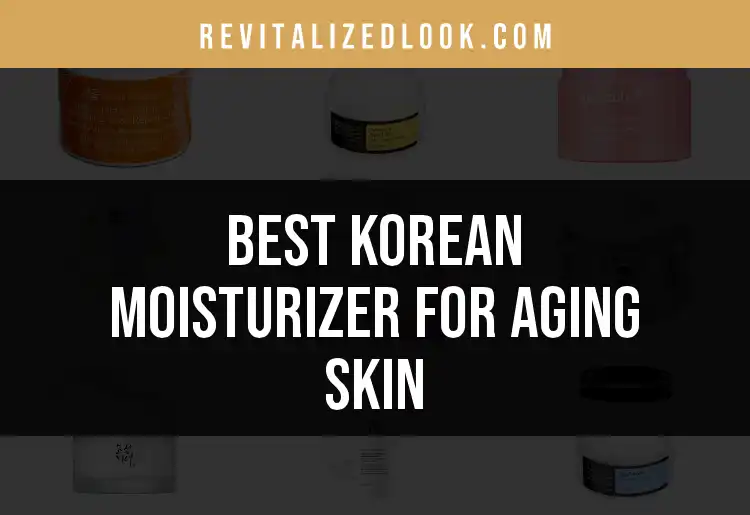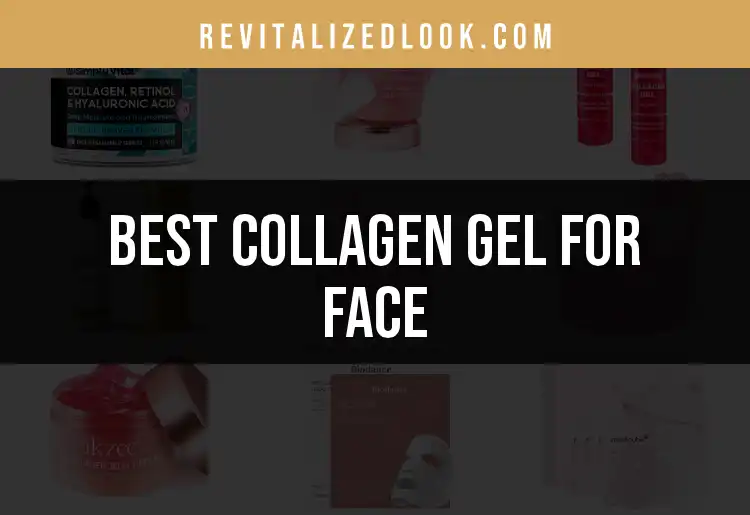Introduction to Hydration & Firmness in Anti-Aging
The pursuit of youthful, radiant skin often revolves around two cornerstone principles: maintaining optimal hydration and preserving firmness. As we age, our skin naturally becomes more vulnerable to dehydration and loses its underlying support structures, which are essential for a firm, lifted appearance.
Hydration is not just about drinking water; it's integral to skin function at the cellular level. When skin is adequately hydrated, it looks plump, feels supple, and displays a healthy glow. Poor hydration, on the other hand, can accelerate the visible signs of aging.
Firmness relates to the skin’s elastic fibers—primarily collagen and elastin—that keep it taut and resilient. Over time, the production of these fibers slows, and external factors exacerbate their breakdown, leaving skin with sagging, fine lines, and wrinkles.
Understanding how to keep your skin hydrated and firm offers a powerful approach to anti-aging. Our guide explores the science, proven strategies, and integrative routines—deepening your knowledge and offering actionable advice on how to achieve lasting results.
Understanding Skin Structure and the Role of Hydration
Skin Anatomy: Layers and Their Functions
Skin is the body's largest organ, consisting of three main layers:
- Epidermis: The outermost protective barrier
- Dermis: Contains collagen, elastin, blood vessels, and hair follicles
- Hypodermis: Subcutaneous fat providing cushioning and insulation
Each layer relies on sufficient water content to perform optimally. The epidermis depends on natural oils and water to prevent transepidermal water loss (TEWL), which, if unbalanced, can leave skin vulnerable to irritation and accelerate premature aging.
The Role of Water in Skin Flexibility and Elasticity
Water is a primary component in maintaining skin elasticity. Well-hydrated skin remains pliable and resilient against environmental stressors. As dehydration increases, skin loses its stretch, leading to the formation of tiny cracks and an increased risk of fine lines.
How Dehydration Accelerates Aging Signatures
Dehydration causes the skin to appear dull, feel tight, and become more susceptible to wrinkles. Scientifically, chronic dehydration can impact keratinocyte turnover and hinder the production of new collagen and elastin. These changes manifest as a loss of firmness and visible sagging.
Key Indicators of Poor Hydration and Loss of Firmness
Be alert for:
- Fine lines, particularly around the eyes and mouth
- Increased sensitivity or redness
- Dull, sallow complexion
- Loss of elasticity when gently pinched
- More pronounced pores and creases
If you notice these changes, discovering the most effective face moisturizers for keeping a youthful look might prove invaluable in your daily routine.
Internal Hydration Strategies
Importance of Adequate Water Intake
Internal hydration begins with consistent water consumption. The commonly cited "8 glasses a day" is a helpful baseline, but hydration needs vary based on climate, activity level, and age. Beyond skin, proper water intake supports organ function, circulation, and cellular repair.
Hydrating Foods and Nutrients
Fruits and Vegetables Rich in Water
Water-rich foods like cucumbers, watermelon, celery, and citrus fruits are excellent for hydrating the body from within. These not only provide water but are also packed with essential vitamins and antioxidants to fight oxidative stress.
The Role of Electrolytes
Electrolytes such as potassium, magnesium, and sodium are crucial for water retention and absorption at the cellular level. A balanced diet with avocados, bananas, and leafy greens ensures your skin stays hydrated, reducing the chance of dry, sagging areas.
Supplements for Hydration and Collagen Support
Collagen Supplements: Types and Efficacy
Oral collagen supplements have gained popularity for their ability to support skin structure and hydration. Forms include hydrolyzed collagen peptides, collagen capsules, and unique delivery methods like jelly and drinks.
Japanese Collagen Drinks: Benefits & Usage
Among collagen supplements, the tradition of using Japanese collagen drinks for daily rejuvenation stands out. These beverages deliver highly bioavailable collagen peptides, often combined with vitamins and hyaluronic acid, to boost skin’s suppleness.
Taking a daily collagen drink has shown in studies to:
- Improve skin hydration
- Enhance firmness and elasticity
- Diminish the appearance of fine lines over time
Hydration-Boosting Beverages and Teas
Herbal teas like rooibos, chamomile, and green tea offer hydration plus antioxidant effects, supporting skin’s natural repair functions. Avoid excessive caffeinated beverages, which can lead to dehydration if consumed in large amounts.
Exploring resources on how collagen supplements can enhance hydration and firmness is also helpful for choosing your ideal formulation.
External Hydration & Skin Barrier Protection
The Role of Moisturizers in Maintaining Hydration
Moisturizers are foundational to any external hydration routine. They trap water inside the skin, preventing TEWL and supporting the barrier function.
Choosing the Right Moisturizer for Youthful Skin
Options abound, but selecting a high-performing moisturizer that targets youthful radiance can make a major difference. Look for products containing hyaluronic acid, ceramides, and peptides—ingredients clinically proven to enhance hydration and stimulate collagen.
Ingredients to Seek for Optimal Hydration
- Hyaluronic Acid: Attracts and retains up to 1,000 times its weight in water
- Glycerin: Draws moisture from the air into the skin
- Ceramides: Strengthen the skin’s natural barrier
- Squalane: Mimics the skin’s own oils for superior hydration
Moisturizer Application Techniques
For lasting results, apply moisturizer to slightly damp skin post-cleansing. Gently pat—don’t rub—the product in to minimize irritation and optimize absorption.
The Significance of Skin Barrier Integrity
The skin barrier is a complex network protecting against pollutants, allergens, and bacteria while retaining moisture.
How to Reinforce Skin Barrier
- Avoid harsh cleansers and stripping toners
- Incorporate oils that offer essential fatty acids and antioxidants
- Use occlusives like shea butter for extra protection
Natural Oils for Skin Tightening
Interest in natural oils for improving skin tightness continues to rise. These oils not only seal in moisture but deliver vital phytonutrients that promote firmness.
Natural Oil Options and Their Benefits
Rosehip Oil
Rosehip is lauded for its high content of vitamin A (retinoic acid) and essential fatty acids, making it a top choice for revitalizing sagging skin.
Argan Oil
Rich in vitamin E and sterols, argan oil boosts elasticity and helps erase fine lines over time.
Marula Oil
Abundant in antioxidants and omega-9, marula oil deeply nourishes while defending against environmental aggressors.
Other Effective Natural Oils
- Jojoba oil: Balances natural sebum production
- Pomegranate seed oil: Encourages skin regeneration
- Sea buckthorn oil: Brightens and tightens with natural carotenoids
For more, discover top picks for skin-tightening natural oils that can fit seamlessly into your regimen.
Collagen and Elastin in Maintaining Firmness and Elasticity
The Role of Collagen in Skin Firmness
Collagen is the primary protein providing structural integrity. In youth, it forms a robust, flexible network that gives skin its bounce and resistance to gravitational sag.
How Collagen Degeneration Contributes to Sagging
After age 25, collagen production declines by about 1% each year. Environmental aggressors accelerate this decline, resulting in thinner skin and the gravitational shift that creates jowls, deep wrinkles, and laxity.
Ways to Boost Collagen Production Naturally
Dietary Approaches
Increasing intake of vitamin C-rich foods, leafy greens, soy, and bone broth can naturally support collagen synthesis.
Topical Collagen Products
While collagen molecules are large, topical products with hydrolyzed collagen and peptides can still offer improvements by hydrating and strengthening the skin barrier.
Collagen Jelly as a Functional Supplement
For a convenient and enjoyable option, collagen jellies designed for skin renewal are innovative. These flavored, pre-portioned supplements offer a tactile, fun way to incorporate collagen peptides and hyaluronic acid into your wellness routine.
The Science and Efficacy of Collagen Jellies
Clinical trials have demonstrated that daily use of collagen jelly can:
- Increase skin smoothness and moisture retention
- Support dermal structure against the formation of new wrinkles
- Deliver collagen in a fast-absorbing format
Combining Collagen Intake with External Care for Best Results
An integrated approach—supporting the skin from both inside and out—yields the most significant gains in firmness and hydration. Supplementation, coupled with moisturizers that promote youthful firmness and natural tightening oils, creates a layered defense against aging.
Lifestyle and Environmental Factors
The Impact of Sun Exposure and Pollution
Ultraviolet rays break down collagen fibers, dehydrate the skin, and contribute to free radical damage. Consistent broad-spectrum sunscreen use and protective clothing are essential. Pollution exposure also disrupts the skin's barrier, increasing water loss and promoting inflammation.
Sleep and Stress Levels
Chronic sleep deprivation and unmanaged stress raise cortisol levels, disturbing the balance of hydration and collagen. Prioritizing rest and practicing relaxation techniques—like breathwork and gentle yoga—make visible differences in skin tone and tightness.
Exercise and Its Role in Skin Firmness
Regular movement boosts blood flow, delivers nutrients, and prompts the body's repair mechanisms, resulting in a firmer, more even skin texture.
Avoiding Harmful Habits
Smoking and heavy alcohol intake slow down cell repair, and drastically reduce skin hydration levels. Quitting these habits remains one of the most effective anti-aging choices one can make.
If you’re rethinking your regimen, incorporating cutting-edge collagen drinks and hydration-focused face creams can further offset lifestyle stressors.
Additional Anti-Aging Techniques and Treatments
Non-Invasive Skin Tightening Procedures
Modern dermatology offers numerous solutions—like ultrasound and radio-frequency therapy—to temporarily tighten and rejuvenate the skin without surgery. These stimulate collagen regeneration beneath the skin's surface.
Microcurrent Therapy and Radiofrequency Treatments
Microcurrent devices send gentle electrical pulses, toning facial muscles, improving circulation, and aiding product penetration for hydration.
Natural Facial Exercises and Massage Techniques
Techniques to Enhance Firmness and Circulation
Gentle, upward strokes with fingertips or a jade roller increase fluid circulation and stimulate the skin’s natural regeneration processes. Always apply a hydrating natural oil for extra glide and nourishment when massaging.
The Role of Antioxidants in Protecting Skin Cells
Antioxidants—like vitamins C and E—shield skin cells from oxidative damage, preserving collagen and elastin. Sources can be dietary or topical, with serums and moisturizers amplifying external benefits.
Integrative Approaches to Hydration & Firmness
Combining Internal and External Strategies
Optimal skin health is achieved through synergy. A well-rounded approach marries hydrating habits, targeted nutrition, regular supplementation, and a reliable external care routine—including natural oils that promote firmness.
Creating a Personalized Anti-Aging Hydration & Firmness Routine
- Start with a gentle, hydrating cleanser
- Follow with an essence or serum featuring hyaluronic acid
- Layer in a firming face moisturizer crafted for youthful skin
- Add a thin layer of an oil targeting skin tightening benefits
- Supplement with collagen jellies or drinks tailored for skin renewal as needed
Monitoring Progress and Adjusting Protocols
Keep track of your skin’s response through monthly photos or journals. Adjust your hydration, topical products, and supplement dosages accordingly, with input from a dermatologist if required.
Precautions and Myths
Common Misconceptions about Skin Hydration & Firmness
- Myth: Drinking more water alone will fully hydrate your skin
- Fact: Hydration requires both internal and external strategies, including the use of well-chosen moisturizers for optimal skin hydration and firming natural oils.
When to Seek Professional Advice
Persistent dryness or unexpected loss of firmness may indicate underlying health issues or product incompatibilities. Consultation with a dermatologist ensures you’re on the right track.
Safety Tips for Topical and Dietary Supplements
- Always patch-test new facial oils and moisturizers
- Look for third-party certifications on supplements and collagen jelly products
- Monitor for allergies, particularly with natural extracts and essential oils
Resources and Expert Recommendations
Top Product Picks for Hydration & Firmness
The market is rich with anti-aging options—from hydrating moisturizers that restore youthfulness to your complexion to vetted natural oils for skin tightening and firmness. Explore user reviews and dermatologist insights when choosing products.
Expert Tips and Warnings
Leading dermatologists suggest combining a layered approach: daily sun protection, high-quality moisturization, targeted supplementation, and regular self-assessment. If you’re curious about advanced solutions, the best Japanese collagen drinks and collagen jellies with clinical support offer innovative paths to glowing, firmer skin.
Future Trends in Hydration & Skin Firmness Treatments
Expect to see more bio-identical peptides, adaptogenic skincare ingredients, and hybrid products (like collagen jellies for firm, hydrated skin) that seamlessly merge results, convenience, and enjoyment. Staying informed ensures your routine evolves for lifelong skin vitality.

















